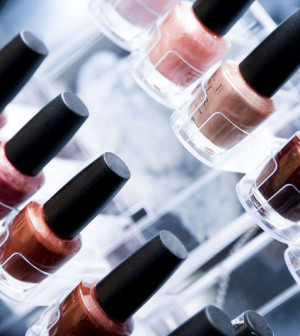- Could Your Grocery Store Meat Be Causing Recurring UTIs?
- Are You Making This Expensive Thermostat Error This Winter?
- Recognizing the Signs of Hypothyroidism
- 10 Strategies to Overcome Insomnia
- Could Artificial Sweeteners Be Aging the Brain Faster?
- Techniques for Soothing Your Nervous System
- Does the Water in Your House Smell Funny? Here’s Why
- Can a Daily Dose of Apple Cider Vinegar Actually Aid Weight Loss?
- 6 Health Beverages That Can Actually Spike Your Blood Sugar
- Treatment Options for Social Anxiety Disorder
Choose Wrinkle Treatments Wisely, FDA Advises


Injectable dermal fillers are widely used by people seeking to smooth out wrinkles, but it’s important to know the risks of these products before using them, a U.S. government expert says.
Dermal fillers use a variety of materials to treat facial wrinkles. Most of these products are temporary and last for about six months or more. Only one permanent wrinkle filler is approved by the U.S. Food and Drug Administration. Dermal fillers are not approved for use anywhere else but on the face.
“As with any medical procedure, being injected with dermal fillers poses some risks. You should ask what you can expect and contact your health care professional if you are concerned about a particular side effect,” Dr. Janette Alexander, an FDA medical officer, said in an agency news release.
Common side effects include bruising, redness, swelling, pain and itching. Other side effects can include infections, lumps and bumps, discoloration or a change in pigmentation. Rare, but serious, risks include scarring, blurred vision, partial vision loss, blindness and severe allergic reactions (anaphylactic shock).
Most side effects occur shortly after a dermal filler is injected and vanish within two weeks, according to Alexander. She said you should not use wrinkle fillers if you have:
- Severe allergies marked by a history of anaphylactic shock
- An allergy to collagen (if you want to use a filler containing collagen)
- An allergy to lidocaine (if you planned on using a filler with lidocaine)
- A tendency to form excessive scarring or thick scarring
- A bleeding disorder
- An active inflammatory condition — such as cysts, pimples, rashes or hives — or an infection. In such cases you should postpone treatment until the condition is controlled.
Alexander also noted that the safety of dermal fillers is unknown when used in pregnant or breast-feeding women, in people younger than 18 or when used with Botox and other wrinkle treatments.
She also warned to never buy dermal fillers on the Internet. They could be fake, contaminated and/or dangerous.
More information
The U.S. National Institute on Aging has more about aging and skin care.
Source: HealthDay
Copyright © 2026 HealthDay. All rights reserved.










